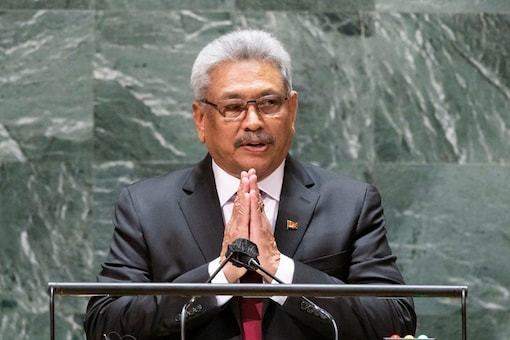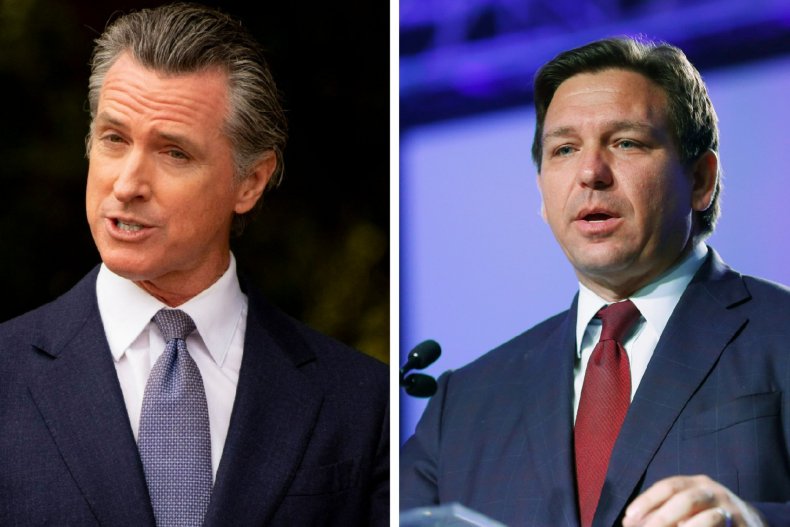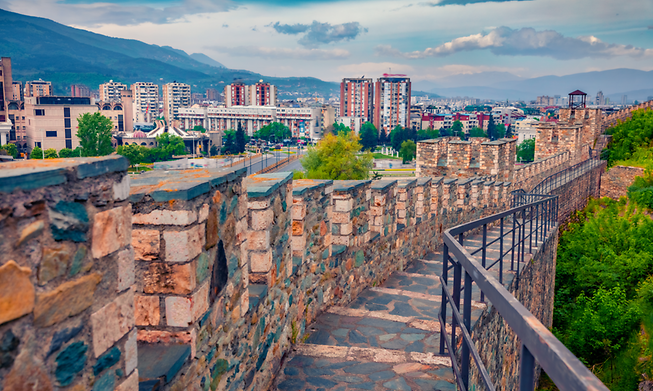Sri Lanka is facing its worst economic crisis since independence from British rule in 1948, with a severe foreign exchange shortage hampering the import of essentials including food, fuel and medicines.
Press Trust of India

Sri Lanka is witnessing widespread protests against its government over the unprecedented economic crisis (File)
What started as a small protest by a handful of individuals demanding basic necessities turned into a tsunami that uprooted the once-powerful Rajapaksa family in what was Sri Lanka's 'Arab Spring' moment, but the road to recovery from the country's worst economic crisis in decades looks distant and painful.
Sri Lanka is facing its worst economic crisis since independence from British rule in 1948, with a severe foreign exchange shortage hampering the import of essentials including food, fuel and medicines. Its foreign debt is over $50 billion with repayments this year falling to the tune of $7 billion.
As the crisis emerged in March, a handful of individuals gathered in a small group holding placards to demand basic necessities like milk powder and a regular power supply.
Within days, Sri Lankans were forced to wait in miles-long queues to get fuel and cooking gas and suffered from multiple hours of power outages. Some 20 people even died while waiting for their turn in the serpentine queues in scorching heat.
Enough was enough for the people who have waited each passing day for the government to respond, respond positively. But the Rajapaksa government did not offer any solutions and there was no end to the people's suffering.
The government declared bankruptcy in mid-April by refusing to honour its international debt. The situation created a thriving black market where people paid to secure a place in the queue and fuel was sold 4 times higher than the legal retail price.
With no end to their sufferings, people across Sri Lanka took to the streets calling for the resignations of President Gotabaya Rajapaksa and his elder brother, Prime Minister Mahinda Rajapaksa. The Rajapaksas, a powerful dynasty that ruled Sri Lanka for nearly two decades, has been blamed for the country's economic ruin.
It was the dawn of the 'Arab Spring' moment, a series of anti-government protests, uprisings, and armed rebellions that spread across much of the Arab world in the early 2010s.
Unfazed by the power that the Rajapaksa family wielded, the people gathered at the Galle Face Green in the heart of Colombo, raising the slogan "GoGotaGama" in a peaceful protest.
These protesters have been at the forefront of the popular 'Aragalaya' movement - named after the Sinhalese word for "struggle" - calling for the resignation of President Gotabaya and his elder brother Mahinda.
Also Read: | Centre calls all-party meeting on July 19 to discuss Sri Lanka crisis
The slogan attracted students, activists, youths and people from all walks of life, who joined the protests, overcoming the deep ethnic and religious divide in the country.
Under mounting pressure, President Gotabaya first dropped his older brother Chamal and his eldest nephew Namal from the Cabinet in mid-April.
In May, Prime Minister Mahinda also resigned after his supporters attacked anti-government protesters, triggering violence against the Rajapaksa family loyalists in many parts of the country.
Gotabaya tried to tackle the crisis for a few weeks along with the newly-appointed Prime Minister Ranil Wickremesinghe before the President was forced to flee his official residence in the face of massive public protests in July.
"We are tired of the situation in the country. They have no solution," says Ananda Arunajith, a tuk-tuk operator.
Also Read: | Sri Lanka begins process of electing new president after Rajapaksa quits
While he languished in the petrol queue, his wife Sumali waited in the cooking gas line.
Some mothers had to take their toddlers to the queues as they waited overnight to hear the news of stocks arriving.
Shehan Perera, an IT industry middle-level executive, says the jobs have come under threat due to the fuel crisis.
"The employees now seem to look for running businesses with minimum manpower resources. This has made us work a lot harder to perform and show results," he says while keeping his car in a long queue in the city.
"Our generation has been almost rendered useless by this fuel crisis. I take a rest break at night in the fuel queue to get the limited fuel supply for my scooty," says Yohan Perera, a young hospitality industry trainee.
He has waited in the queue for over hours many times, only to be told that the pumps had run dry when he was within striking distance of the pumping station.
"Who takes responsibility for the deaths of nearly 20 people who have died in the waiting queues?” asked Walter Peiris, a retired official.
He said his wife was sending food and water to the fuel queue as he waited.
Also Read: | How Sri Lanka spiraled into crisis | Explained
The government has said the situation will get worse before it gets better.
"This is sheer incompetence. They just don’t know how to manage the economy," says Shamal Jayaratne, a self-employed man.
He says he closes his motorcycle battery and tyre selling business to join the queue at least three days of the week.
Steven McKenzie, who returned from the Middle East last year, says the fuel situation would have been even more dire without the Indian Oil Company’s local operations.
"The trade unions opposed it when the Lanka IOC, a subsidiary of the Indian Oil Corporation, was provided oil storage tanks in Trincomalee and given retail pump operation permission. Now you see, it is the IOC which has come to our rescue," he says.
"Since the government can’t handle this, the IOC must be given the entire operation," he said.
Also Read: | Sri Lanka crisis: Why more countries are facing similar economic turmoil
On July 13, President Gotabaya fled to the Maldives before landing in Singapore from where he sent his resignation letter, capping off a chaotic 72 hours in the crisis-hit nation that saw protesters storm many iconic buildings, including the President and the Prime Minister's residences here.
While the public protest campaign organisers feel elated with Gotabaya's ouster, the light at the end of the tunnel remains distant by all means to those who still suffer in the fuel queues.
Sri Lanka's Parliament held a special session on Saturday to start the process of electing a new president who will head the next government that has the arduous task of reviving the country's bankrupt economy.
The economic crisis that has turned into political turmoil has deepened concerns that solutions to the economic woes, like the International Monetary Fund's assistance, will be delayed.
In June, Prime Minister Wickremesinghe told Parliament that the country’s debt-laden economy had “collapsed” after months of shortages of food, fuel and electricity.
"We are now facing a far more serious situation beyond the mere shortages of fuel, gas, electricity and food. Our economy has completely collapsed. That is the most serious issue before us today,” he said.
Wickremesinghe, who is now the interim President, said that it will take till 2026 to go back to the 2018 level of the economy.
"If we make a determined journey along this road map, we can achieve an economic growth rate of negative one by the end of 2023,” he said.
On July 5, Wickremesinghe said Sri Lanka’s inflation by the year end would be over 50 per cent and by the end of this year, it will rise to 60 per cent, mainly due to the increase in the prices of goods in the world and the fall in the value of the rupee.
On Friday, the World Food Programme said in a situation report that 6.3 million people (28.3 per cent) in the country are food insecure and this is likely to deteriorate as the crisis unfolds.
It is unlikely that the future government will be in a position to provide economic relief in a short span. The process of economic recovery looks distant and painful.
By: Manoj Gupta
CNN-News18
JULY 15, 2022,
New Delhi, India

File photo of Gotabaya Rajapaksa. (Image: Reuters)
Sources confirmed to CNN-News 18 that he has also approached India, but India has denied his request. India does not want to be seen against Sri Lankan people
More trouble seems to be in store for Gotabaya Rajapaksa, who resigned as the Sri Lankan President on Friday, as Singapore is not keen on letting him stay for long, according to sources.
Rajapaksa, 73, left the country along with his wife and two security officers on a military jet on Wednesday and went to the Maldives, from where he headed to Singapore.
The authorities in Singapore have told Rajapaksa that he has permission to stay for 15 days, which is unlikely to be extended, added sources.
Rajapaksa is not clear about his plan after the next 15 days, they added. Sources confirmed to CNN-News 18 that he has also approached India, but India has denied his request. India does not want to be seen against the Sri Lankan people, said sources.
Rajapaksa announced last Saturday his decision to step down on July 13, after thousands of protesters stormed his official residence, blaming him for the unprecedented economic crisis that has brought the country to its knees. He, however, fled to the Maldives without resigning from his office.
From Maldives, he went to Singapore on Thursday.
A spokesperson for Singapore Ministry of Foreign Affairs said that Rajapaksa has been “allowed entry into Singapore on a private visit".
He has “not asked for asylum and neither has he been granted any asylum", the spokesperson said on Thursday, adding Singapore does not grant requests for asylum.
THE OFFICIAL ANNOUNCEMENT
Rajapaksa has resigned, Parliament Speaker Mahinda Yapa Abeywardena officially announced on Friday, two days after the embattled leader fled the country in the face of massive protests against his government for mishandling the economy that bankrupted the country.
The leader on Thursday emailed his resignation letter to the Speaker soon after he was allowed by Singapore to enter the city-state on a “private visit". On Friday morning, Speaker Abeywardena formally announced that President Rajapaksa has resigned after confirming the authenticity of the resignation letter emailed to him.
“I have received the resignation letter sent by President Rajapaksa. Accordingly, the president has resigned with effect from July 14," he said.
In a press statement, the Speaker said that Prime Minister Ranil Wickremesinghe will act as the interim president till the conclusion of the process of electing a new president by parliament.
He urged the public to allow a peaceful environment for all lawmakers to take part in the process which should be completed within seven days.
WHAT NEXT?
The Sri Lankan Parliament will meet on Saturday. Under the Sri Lankan Constitution, if both the president and prime minister resign, the Speaker of parliament will serve as the acting president for a maximum of 30 days.
The Parliament will elect a new president within 30 days from one of its members, who will hold the office for the remaining two years of the current term.
The official announcement of Rajapaksa’s resignation comes a day after anti-government protesters vacated some of the administrative buildings, including the President’s House and the PM Office, they have been occupying since April 9 demanding Rajapaksa’s ouster.
Sri Lanka, a country of 22 million people, is under the grip of an unprecedented economic turmoil, the worst in seven decades, leaving millions struggling to buy food, medicine, fuel and other essentials.
With PTI Inputs
While the widespread public unrest in Sri Lanka has been caused by economic turmoil, the democratic values in the country have also been declining for some time.
Piyush Aggarwal

People stand holding a national flag at the President Gotabaya Rajapaksa's office on the second day after it was stormed in Colombo, Sri Lanka, Monday, July 11, 2022. (Photo: Associated Press)
On the brink of a collapse caused by economic turmoil and financial disruptions, the situation in Sri Lanka has become highly precarious for nearly 21 million people.
It has resulted from arbitrary policy decisions, the nation's high dependence on imports, and the draining of foreign reserves. The country now does not have enough funds even to pay the interest on loans — this, while its mounting debt has risen to more than $50 billion. At the same time, democratic values in Sri Lanka have been declining.
CRISIS IN THE MAKING
After the end of the civil war in 2009, the government started concentrating on economic development. However, things worsened after 2018 when the country faced a major constitutional crisis. In late 2018, President Maithripala Sirisena sacked then Prime Minister Ranil Wickremesinghe and replaced him with Mahinda Rajapaksa. Later in 2019, sweeping income tax cuts were introduced, which led to the loss of government revenue. Consequently, foreign reserves sank.

To make matters worse, Sri Lanka’s flourishing tourism industry came to a standstill because of the Covid-19 pandemic. Further, in 2021, when the government decided to ban the import of chemical fertilisers and promoted local organic fertilisers, there was a massive crop failure.
DECLINING DEMOCRATIC VALUES
According to the Sweden-based V-Dem Institute, the Liberal Democracy Index has constantly declined in Sri Lanka since 2018. As per the institute's definition, LDI focuses on protecting individual and minority rights against the state's and the majority's tyranny. It was at its highest level in the last 50 years in 2018 when its value was 0.48. However, in late 2018, when the country went through an unprecedented constitutional crisis, the LDI went downward.
The V-Dem institute's latest report, Democracy Report 2022: Autocratisation Changing Nature, released earlier this year, noted that "Changes in Sri Lanka reflect a move to centralise power under President Rajapaksa and his family members through constitutional amendments removing checks on executive power."
Also Read | Sri Lanka crisis: Why more countries are facing similar economic turmoil
Apart from the LDI, the Electoral Democracy Index also dipped after 2018. It considers the core value of making rulers responsive to citizens. Along with the democracy indices, the core civil society index, which measures the robustness of civil society, has also plunged. It was at its peak in 2018, when its value was 0.89. However, soon after that, it started to fall. In 2021, the index stood at 0.43.
As per V-Dem's earlier report, among the many reasons for the considerable decline in the democratic indices in Sri Lanka was also how the country used the Covid-19 pandemic to erode democratic values and institutions to put democracy at risk.










